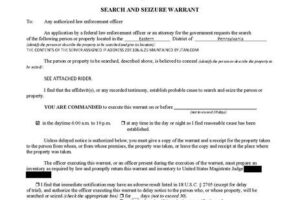Controversy Over Cook County Pretrial Release Procedures
Nearly all local judges are essentially ignoring the new guidelines that are designed to make the bond system more efficient, predictable, and fair, according to a Cook County Sheriff's Office study. In about 85% of cases, judges deviate from the pretrial guidelines. The study noted that the deviations were “inconsistent,” even when considering the defendants’ backgrounds and the nature of the charges against them. Last month, Illinois Supreme Court Justice Anne Burke, one of the new system’s architects, said the...
Keep Reading »



